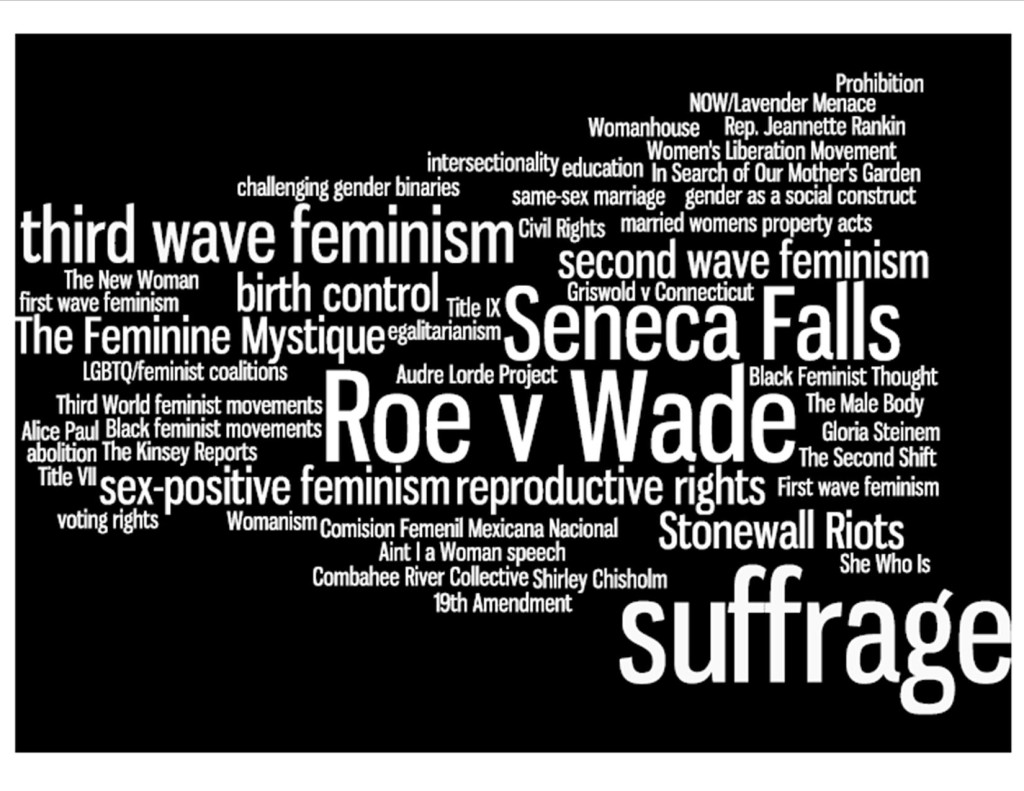I’m taking a class titled “History of U.S. Feminisms,” and I’m taking in an abundance of new information. I declare myself a feminist, and I’ve read feminist writers on my own time, but this is the first time I’ve ever taken a class about feminism, and taking one about its history rather than its theory reminds me of how little I know.
Here’s an example of something I don’t know: how to be a black feminist. We recently read selections from Too Heavy a Load: Black Feminism, 1894-1994., in which Deborah Gray White gives a history of black women’s club organizations whose founding principles were feminist and pro-black: women are (morally superior but otherwise)equal to men and elevating the entire black race will result from uplifting its women. One founder, Mary Church Terrell, asked a group of black women, “Who of you know how to carry your burden in the heat of the day?” She had just named Harriet Tubman and Sojourner Truth as examples of “Negro women” who knew how to do just that.
Maybe there were more details in the documents White extracted the quotes from, but what she included in the book left me wanting. She says there were women who knew how to carry their burden in the heat of the day, but she doesn’t say how they knew. I thought it very interesting that she posed the question to the audience as a “how (disguised as a yes or no),” instead of as an, “Are you ready,” or “Do you want to,” or even as a command to just do it. “Do you know how” implies that there’s a process, perhaps a learning curve. Civil rights activists who protested segregated lunch counters received training in nonviolent resistance. In his Letter from Birmingham Jail, Martin Luther King, Jr. tells white clergy that he and other activists have gone through a spiritual training to prepare themselves.
There is a process, a how-to, to resistance, but for black feminism, White doesn’t give one, and I don’t know of anyone who has. In an earlier class session, the professor unveiled the above Wordle. She had taken all of our answers to the prompt, “Make a list of the five ideas, events, persons, publications, etc. you would narrow the history of feminism down to if you had to explain that history to someone,” and put them into an app that figures out what appears most and least in the text of something and spits out a graphic of those stats in text. The larger the font, the more often that word or phrase appeared in the text. Notice Roe v. Wade is huge. Notice “Ain’t I a Woman,” “Black Feminist Thought,” “Audre Lorde Project” and “Combahee River Collective” are not. Most of the other words are small, too, but as the professor pointed out, it is interesting that there’s no one idea, person, event or publication the people in the class could come up with as the defining  moment for black feminism. No single black feminist serves as a model.
Not that there has to be one, and not that their has to be just one. I love looking at memoir as a primary source of history, to find out how big moments in history and politics affected someone’s everyday life. (That’s one of the reasons I’m writing one.) Black women and black feminists and black womanists throughout different time periods have had myriad ways of handling their multiple identities, and obviously, there’s no right or wrong way. It’s just that if early black feminists “carried their burden in the heat of the day,” and later women would write about the burdens of choosing between your race and your gender and of carrying the success of the race on your shoulders, it seems like a step-by-step manual for all generations would be handy. Or at least one moment, person, idea, event, publication, etc. everyone could point to.

